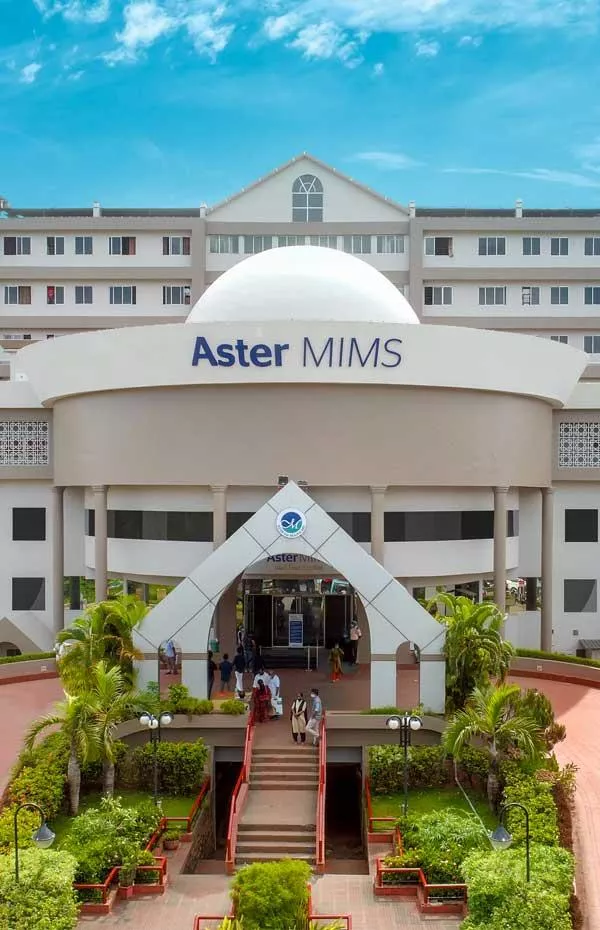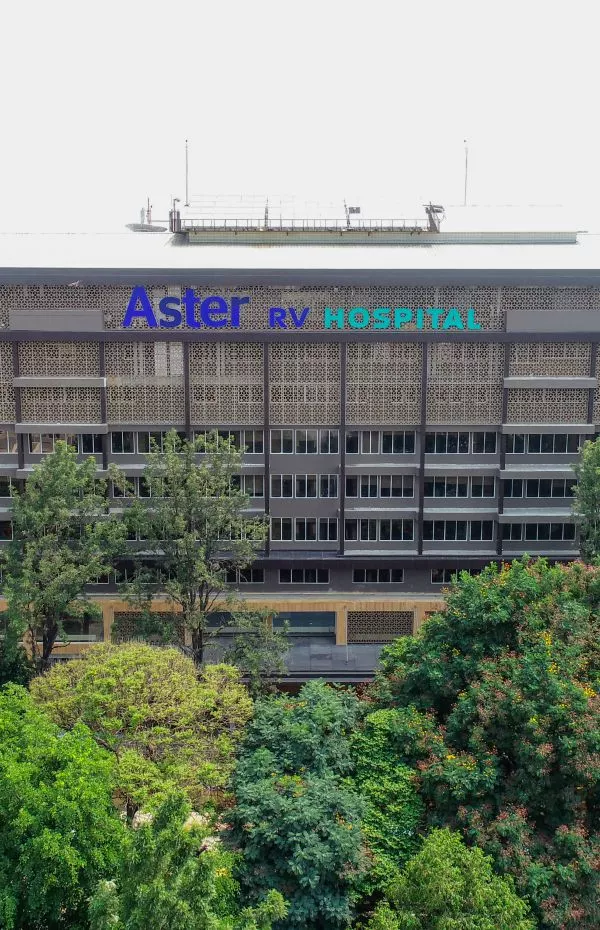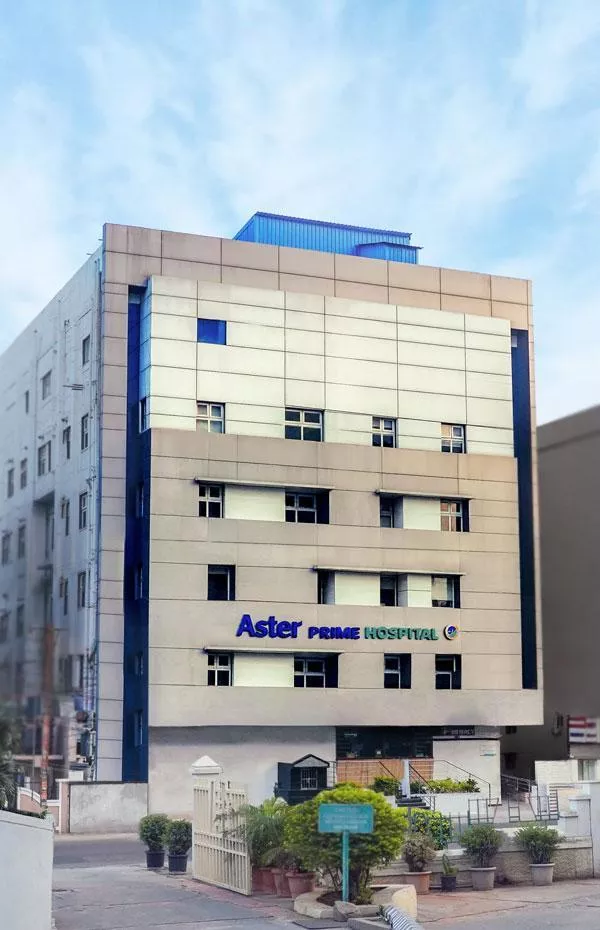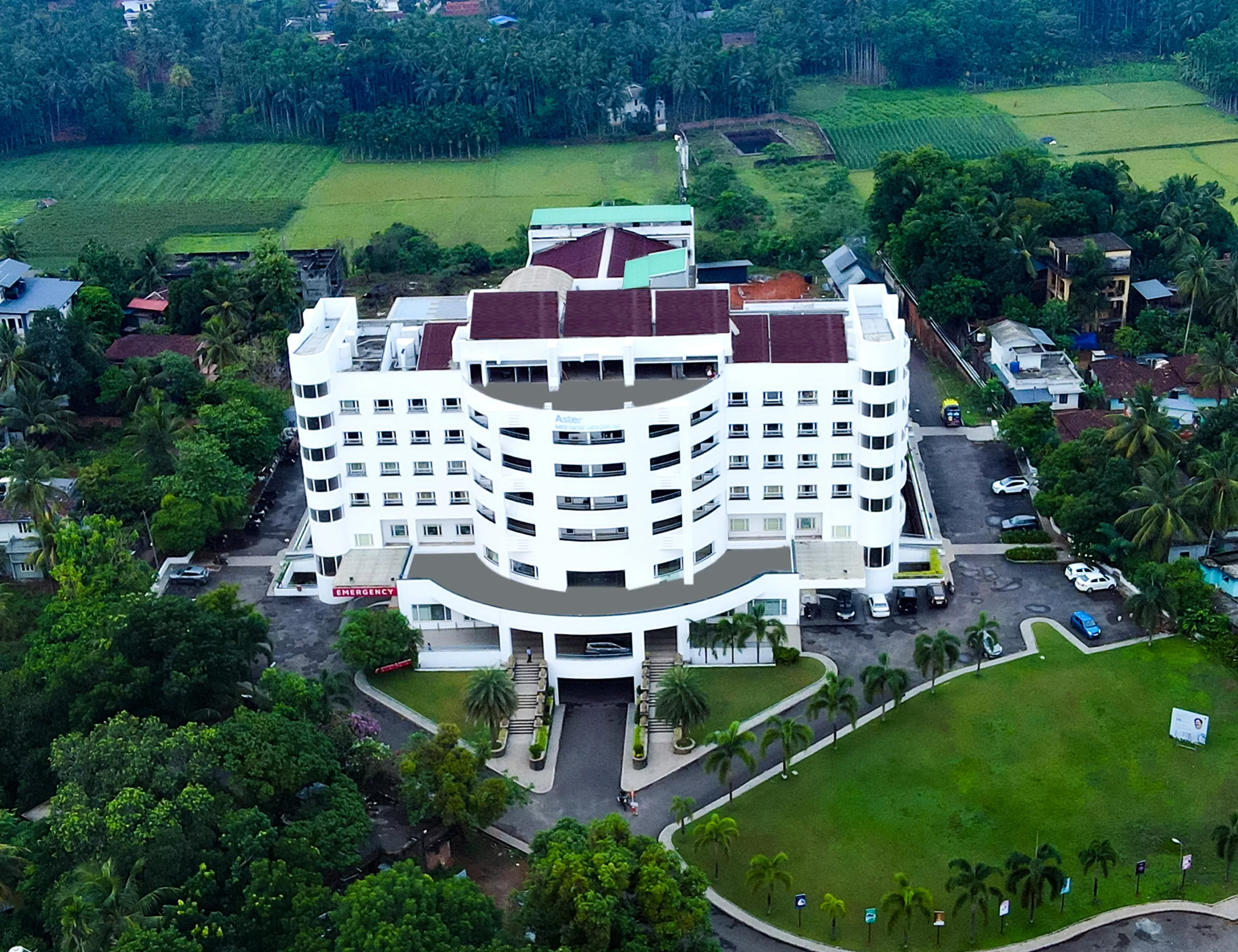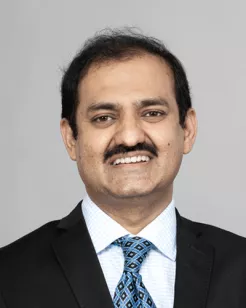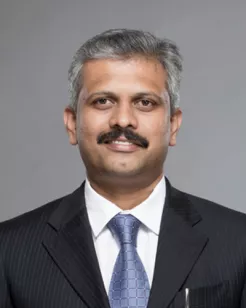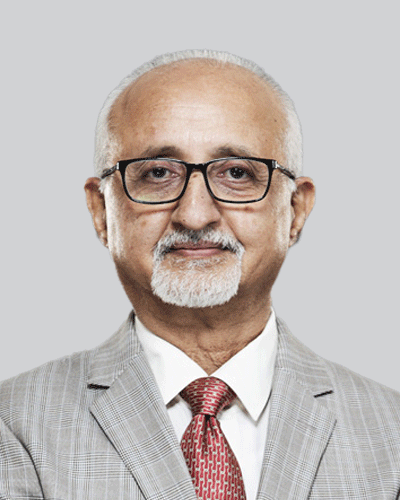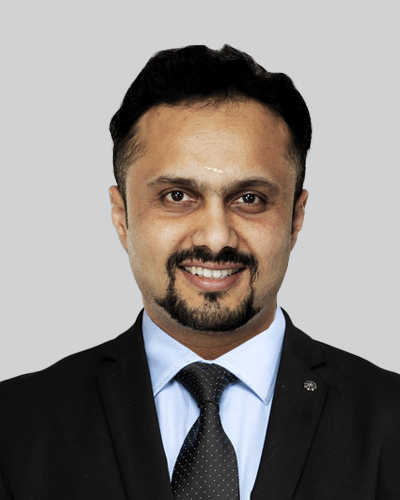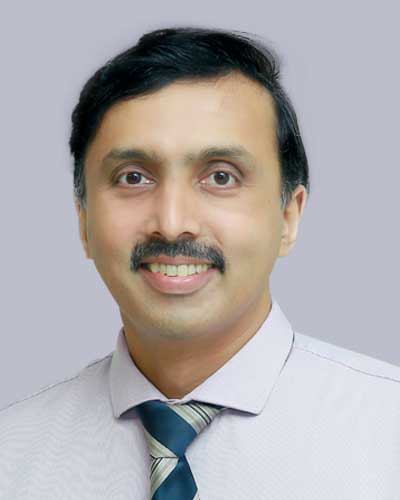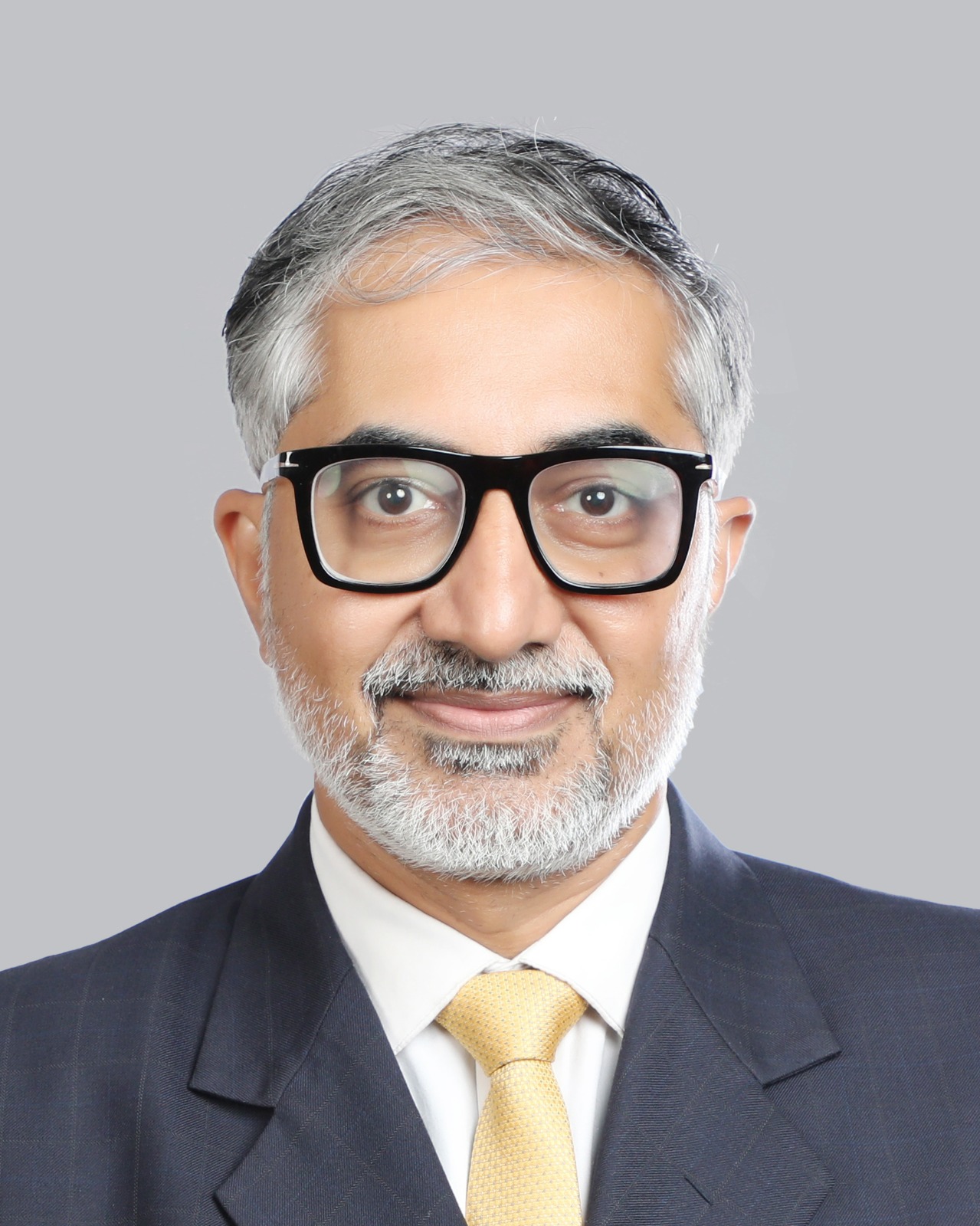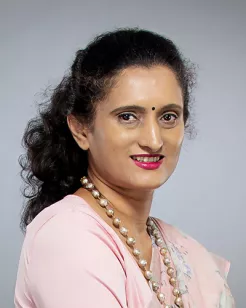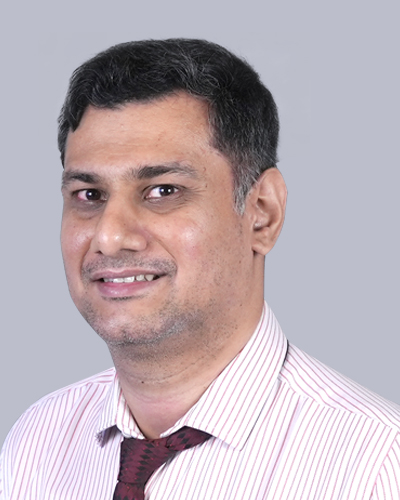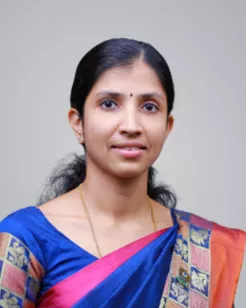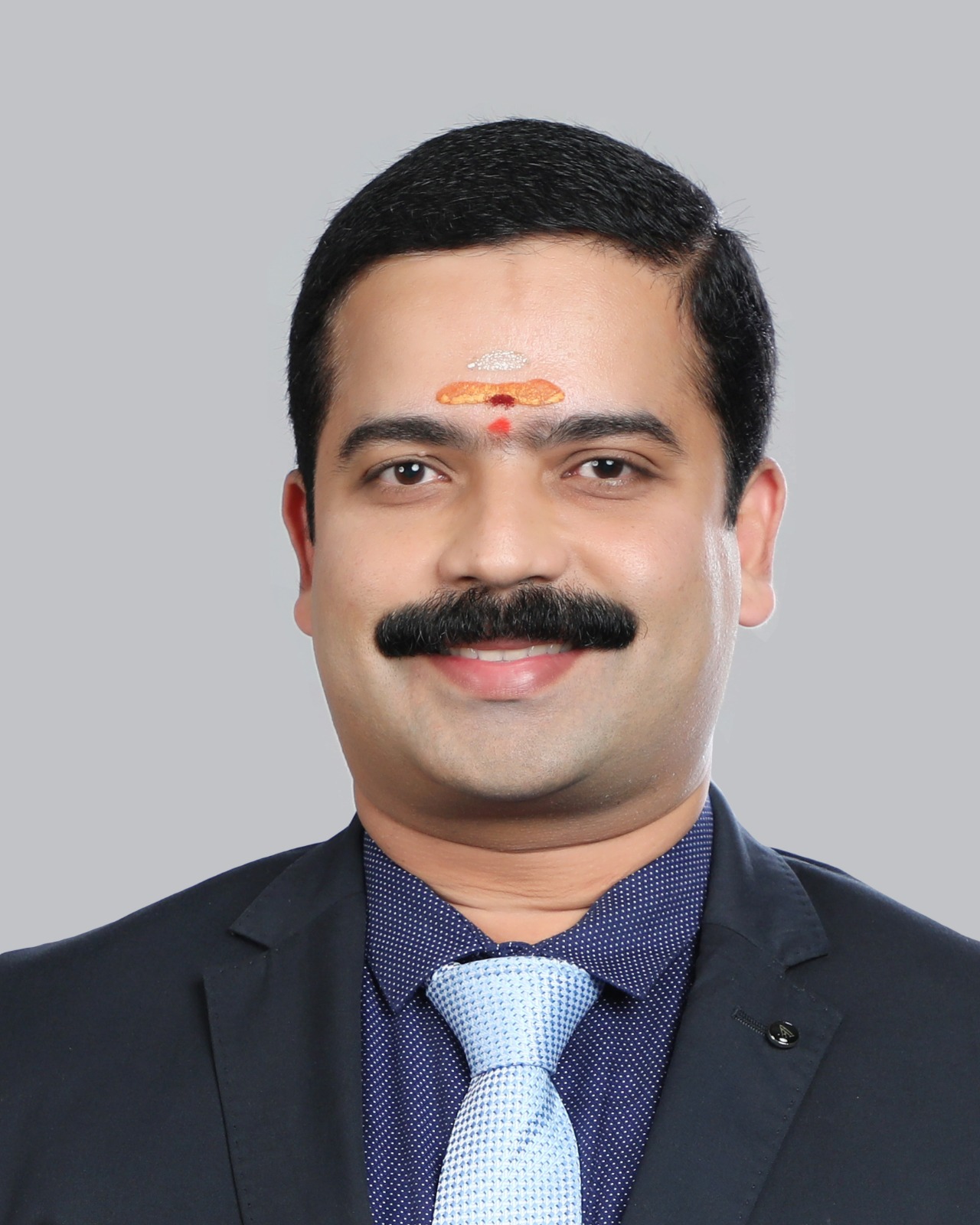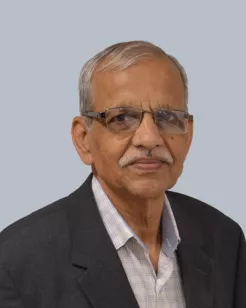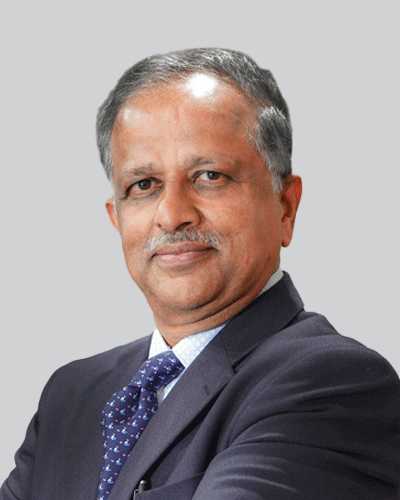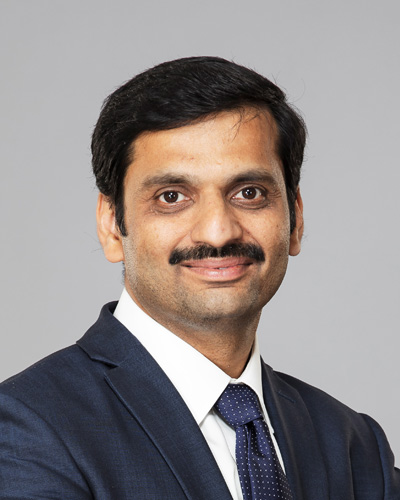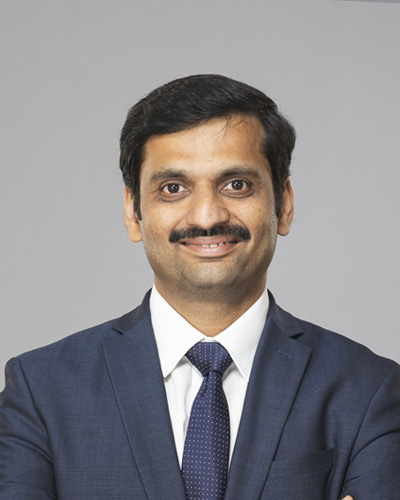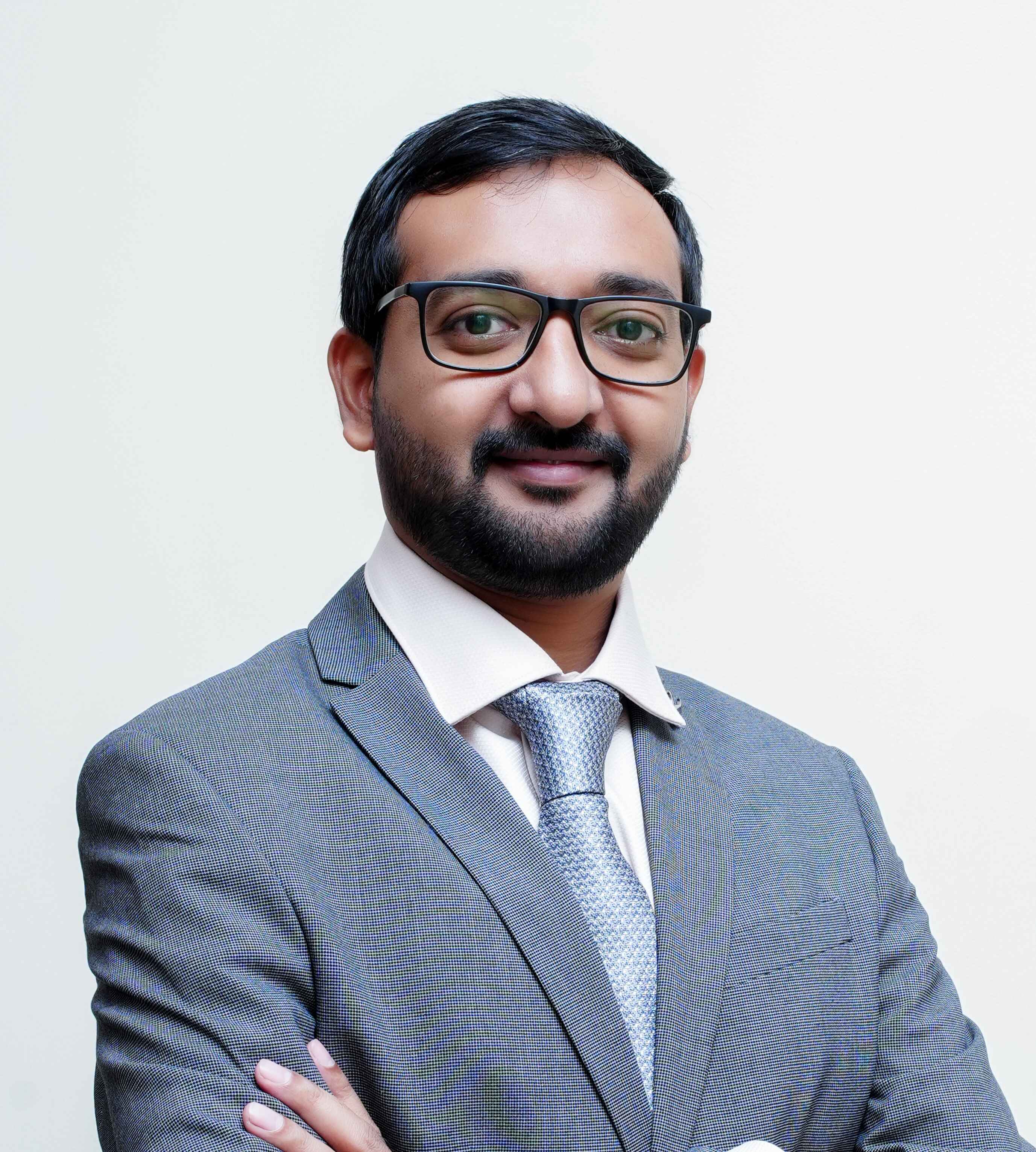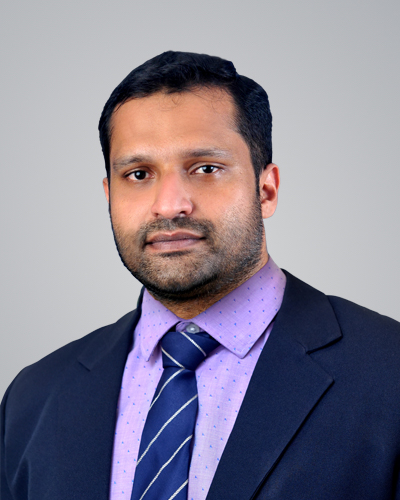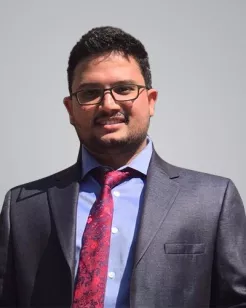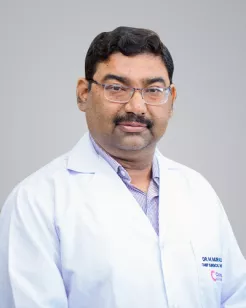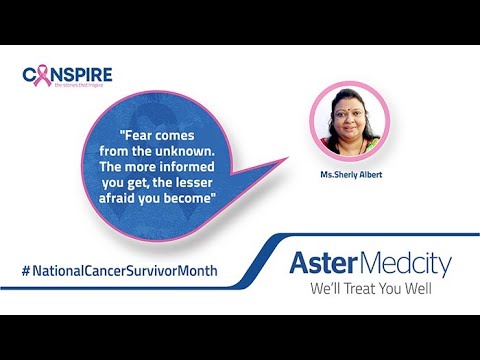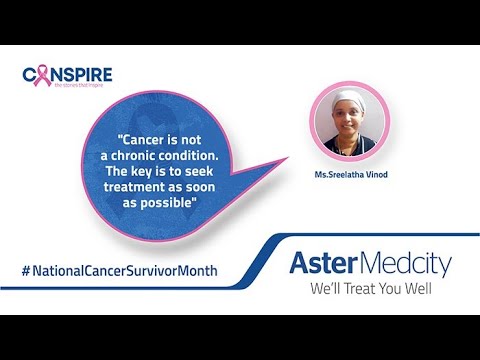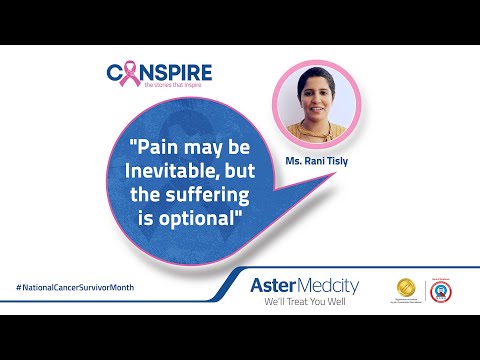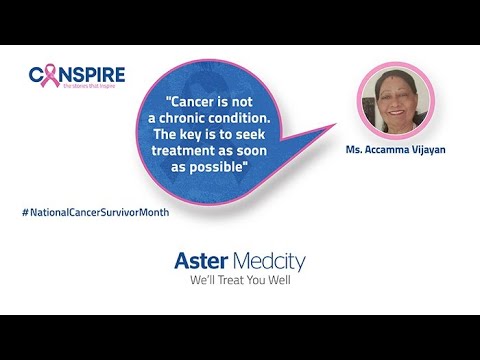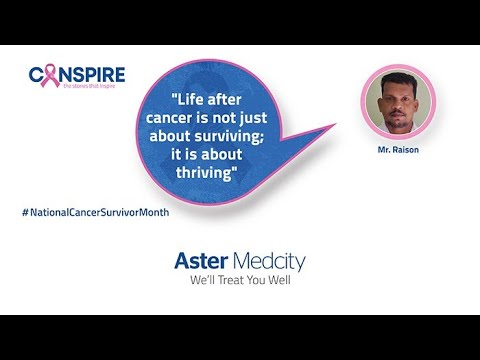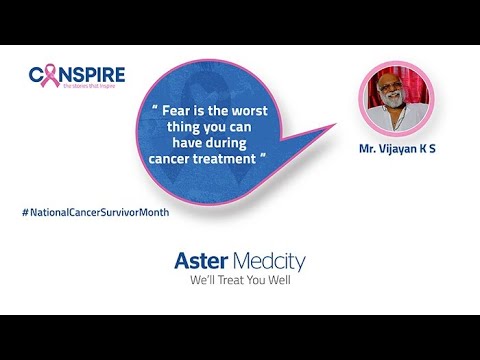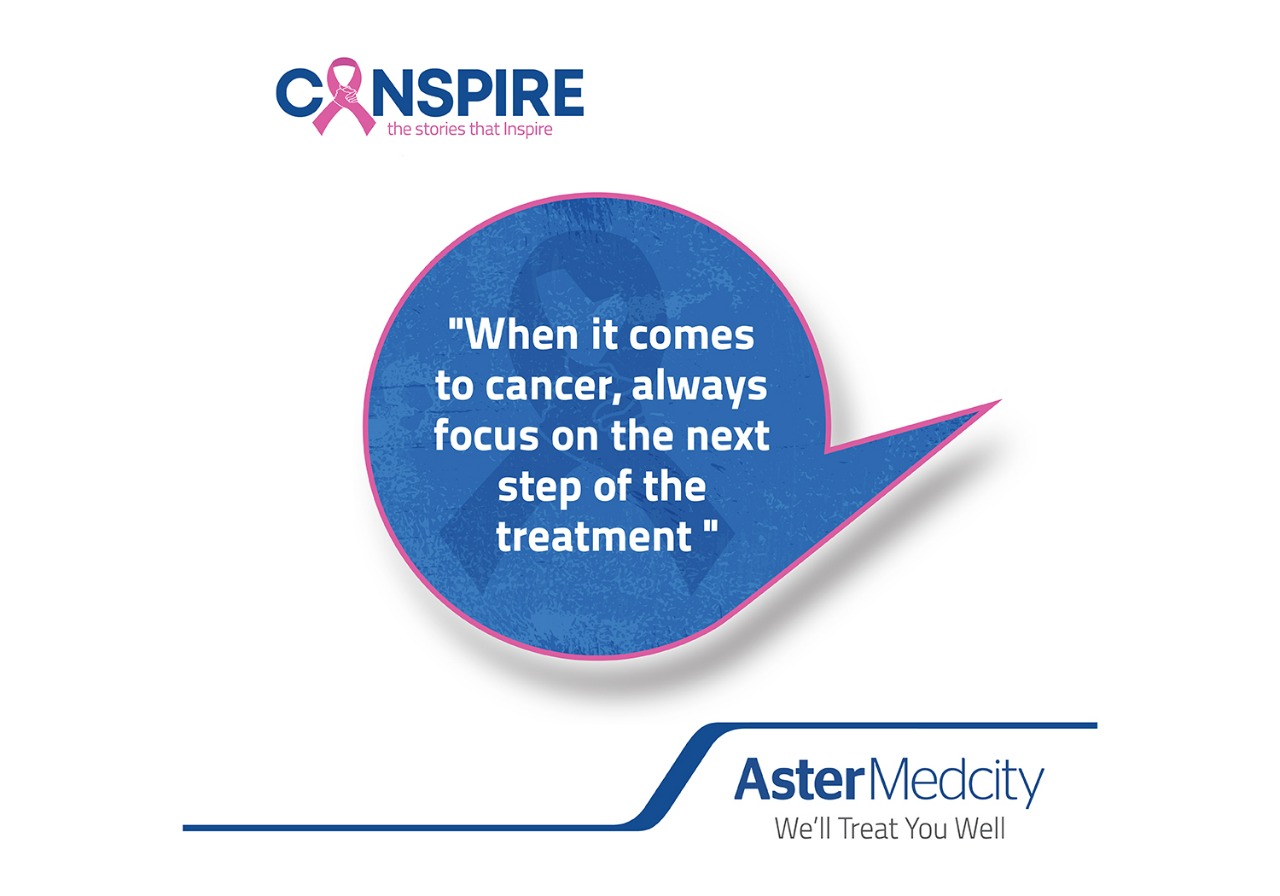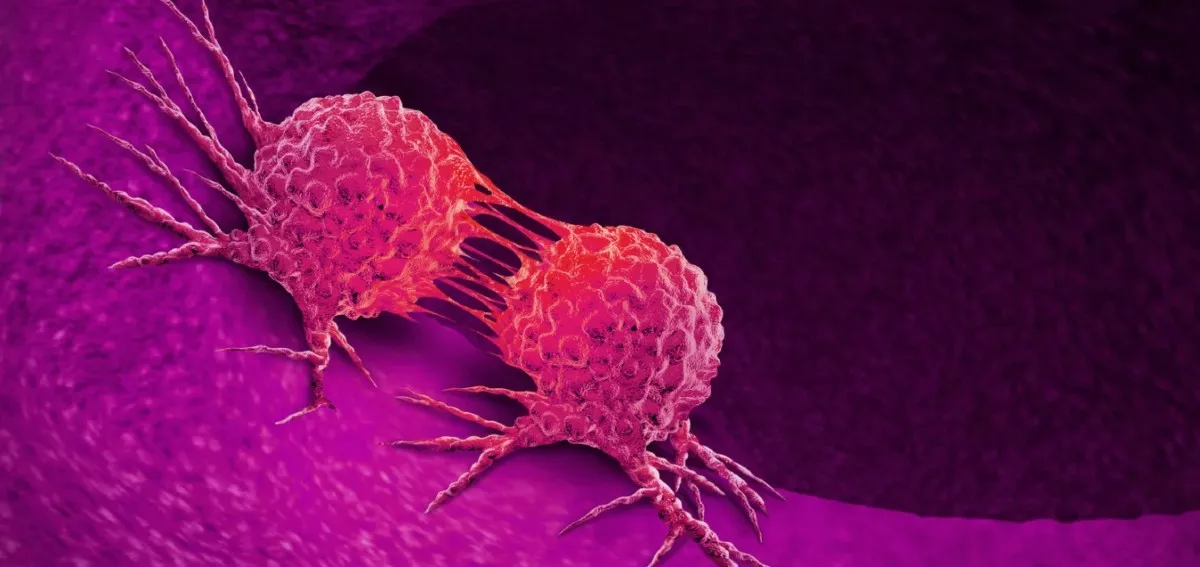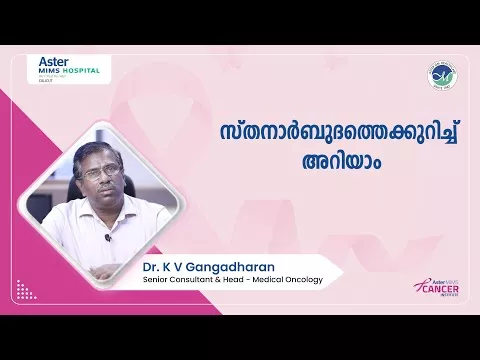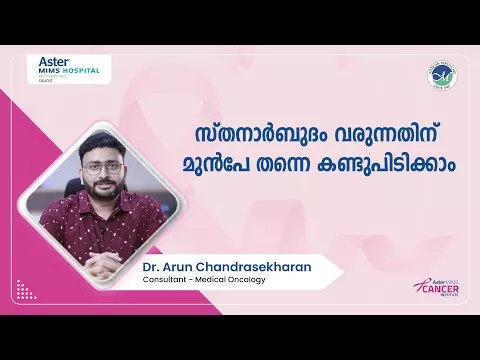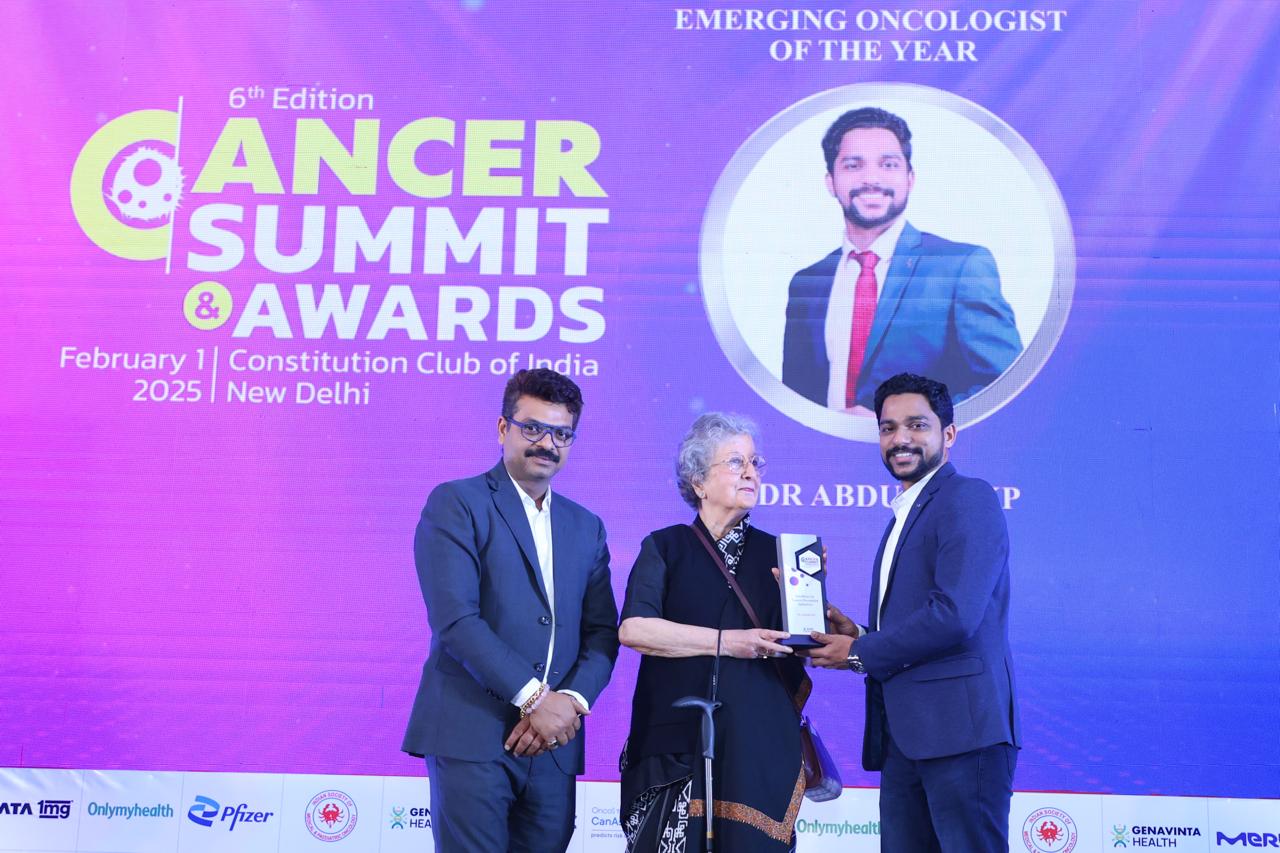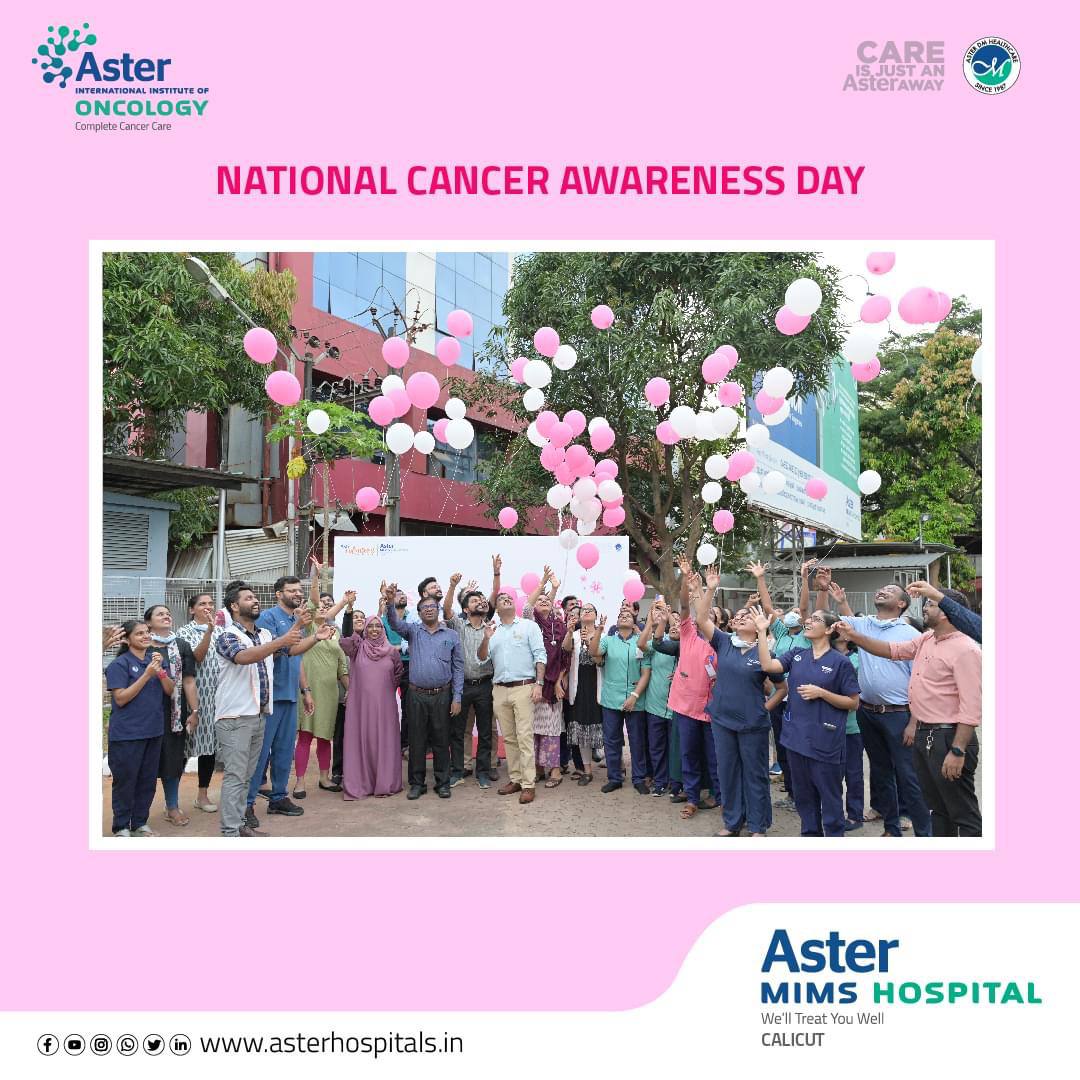A multi-layered approach to cancer.
The multi-faceted and world-class Aster Oncology Centre delivers a comprehensive range of best-in-class, personalized, and affordable services in the diagnosis treatment, recovery, and prevention of cancer. An inclusive range of cancer subtypes is catered to across all age groups-both paediatric and adult.
Our mission is to proactively engage in multi-disciplinary, humane care to help patients return to their normal life as quickly and painlessly as possible. Our best-in-class team of cancer experts work closely with other medical specialities to offer our patients the latest therapies and treatments in a safe and nurturing environment.
Our patients are at the centre of a multi-disciplinary universe. The centre works on an integrated model - with surgeons, medical oncologists, radiation oncologists and a complete range of other allied clinical specialists working in sync under one, close-knit roof.
Our flawlessly perfected processes ensure all our sub-specialities work in unison to deliver world-class cancer care. Our technologies, infrastructure, and systems are comparable with the finest in their class and category.
Both In-patient and Out-patient services are available.
The Department regularly treats international patients from countries like Bangladesh, Afghanistan Africa and Maldives.
Advanced Technology & Facilities
Well equipped with the latest medical equipment, modern technology & infrastructure, Aster Hospital is one of the best hospitals in India.
Mammography is an X-Ray examination of breast tissue. The image produced is called mammogram. A mammogram can help detect problems with your breasts, such as cysts or cancer.
Aster Hospitals, for the first time in Kerala, introduces Robotic Surgery with da Vinci Robot- a highly advanced surgical Robot that performs minimally invasive surgeries with utmost precision. What can be called the next level in surgery, the da Vinci Robot has multi-limbed surgical robot with tiny wrists that bend in all directions, offering precision, dexterity and fine manipulation beyond that of human hand. The Surgeon performs minimally invasive surgeries by manipulating three robotic arms and a video camera that are inserted through small skin incisions, while seated in front of a computer console with 3D video screen and controls. The option of Robotic surgery is available in the Urology, Cardiothoracic, Gynaecology, Oncology, Gastroenterology, Bariatric and Paediatric Surgery Departments at Aster Medcity.
Site specific disease management groups:
Haemato oncology and BMT
Neuro-Oncology,
Orthopedic Oncology,
Gastro Intestinal, hepatobiliary and pancreatic oncology group,
Womens Cancer clinics
Genito Urinary Oncology clinics
Pediatric Oncology group
Head and Neck oncology group
Thoracic Oncology group
ORI Fusion Digital Integrated Operation Theatres With 22 Operating Rooms that are on par with some of the largest in the world, Aster Medcity, for the first time South India, introduces ORI Fusion Digital Integrated Operation Theatres using Karlstorz OR1 Fusion - Asia Pacific’s first complete digital integration system.
The integration enables real-time sharing of images, videos and medical reports, which not only facilitates virtual participation from any location in the world, but also helps the rest of the surgical team to monitor the patient closely during the operative procedure, much to the benefit and safety of the patient undergoing the surgery.
Aster Medcity is also the first surgical facility in the state to offer Robotic Surgery using high-precision da Vinci Surgery Robot.
PET-CT scanning, and Nuclear Medicine Therapy using Radio-pharmaceuticals like Iodine-131
PET –CT based radiotherapy planning
CT scan based radiotherapy planning
CT Simulator
CT –MRI fusion
Image based interventional ooncology (RFA , TACE)
Early screening of cancers in the Breast, Cervix, Head and Neck, Colorectum, Prostate and Lung
Pain and Palliative Care
Diet/Physiotherapy/Psychological/Genetic Counselling
Clinic For Lifestyle Against Cancer Recurrence
Full-fledged Ayurveda Department
Da Vinci Robotic Surgeries
Minimal invasive surgeries
HIPEC surgeries
Organ preservation surgeries
Equipped with revolutionary Time Of Flight (TOF) technology which increases PET performance, the Philips Astonish True flight select PET CT system operates fully in 3D mode and is exceptionally sensitive for faster scans, which means better lesion detectability, precise anatomical details and minimal PET radiation dose as the FDG dose injected is considerably less.
The GE SPECT-CT OPTIMA NM 640 gamma camera can provide exceptionally clear images at a very high speed, facilitating high-precision diagnosis. Low on radiation dose and examination time, it also allows hybrid by integrating the most advanced general purpose camera with a newly developed four-slice CT.
- Siemens Biograph Horizon time of flight PET CT
- GE SPECT CT Optima NM 640
- High Dose Radioactive iodine therapy ward
- Targeted therapy for liver tumours (TARE)
- Targeted Radionuclide Therapy (Lutetium, Actinium) for prostate and neuroendocrine tumours.
- Radiation Synovectomy
- Bone Pain Palliation
Our state-of-the-art facilities incorporate cutting-edge technologies, ensuring precision in diagnostics, treatment, and monitoring, all aimed at providing our patients with the most effective and advanced care available.
FAQs
Want to find out more about the treatment? The answer to your questions can be found below.
What is oncology?
Oncology is the branch of medicine that specializes in the diagnosis, treatment, and study of cancer. Oncologists are medical professionals who focus on treating various types of cancer through methods like surgery, chemotherapy, radiation therapy, immunotherapy, and more.
How is cancer diagnosed?
Cancer diagnosis typically involves a combination of methods, such as medical history, physical exams, blood tests, imaging studies (like CT scans, MRI, or PET scans), and biopsy, where a small sample of tissue is examined for cancer cells.
What are the treatment options for cancer?
Treatment options depend on the type and stage of cancer, as well as other factors like patient health and preferences. Common treatments include surgery, chemotherapy, radiation therapy, immunotherapy, hormone therapy, and targeted therapy. Many treatment plans combine several of these methods to achieve the best outcome.
What is radiation therapy, and is it safe?
Radiation therapy uses high-energy radiation to target and kill cancer cells while minimizing damage to surrounding tissues. It is generally safe when administered by trained professionals, but it can cause side effects such as skin irritation, fatigue, or localized tissue damage.
Can cancer be prevented?
While not all cancers are preventable, there are lifestyle changes that can reduce your risk, such as maintaining a healthy diet, exercising regularly, avoiding tobacco and excessive alcohol, protecting your skin from UV radiation, and getting recommended vaccinations (like the HPV vaccine). Regular screenings and check-ups can also help detect cancer early when it's more treatable.
What are the different types of oncologists?
There are several types of oncologists, including:
Medical Oncologists who use chemotherapy, targeted therapy, and immunotherapy to treat cancer.
Radiation Oncologists who use radiation therapy to target and destroy cancer cells.
Surgical Oncologists who perform surgeries to remove tumors and affected tissues.
Pediatric Oncologists who specialize in treating cancer in children.
Gynecologic Oncologists who focus on cancers affecting the female reproductive system.
What are common symptoms of cancer?
Symptoms of cancer can vary greatly depending on the type of cancer and its stage, but common signs include unusual lumps, unexplained weight loss, persistent fatigue, changes in skin appearance, abnormal bleeding, chronic pain, or changes in bowel or bladder habits. It's important to consult a healthcare professional if you have persistent or unusual symptoms.
What is chemotherapy, and what should I expect?
Chemotherapy involves using drugs to destroy or slow the growth of cancer cells. It can be administered orally or intravenously, and treatment sessions vary in length and frequency. Side effects may include fatigue, nausea, hair loss, and increased risk of infection, but these often depend on the specific drugs and dosage.
What is immunotherapy?
Immunotherapy is a cancer treatment that helps the body's immune system recognize and fight cancer cells. It can involve various approaches, such as checkpoint inhibitors, CAR T-cell therapy, or cancer vaccines. Immunotherapy can be effective for certain types of cancer but may have side effects related to immune system activation.
How can I support someone with cancer?
Supporting someone with cancer involves being there for them emotionally, helping with practical tasks, and respecting their feelings and choices. You can offer transportation to appointments, help with household chores, or simply be a good listener. Joining support groups or seeking professional counseling can also be beneficial for both patients and caregivers.
Patient Stories
Our patients are our best advocates, hear the inspiring stories of their treatment journey
Blogs
The source of trustworthy health and medical information. Through this section, we provide research-based health information, and all that is happening in Aster Hospital.
News & Events
Stay updated with the latest happenings at Aster Hospitals. Explore our News and Events section for insightful articles, health tips, upcoming events, and noteworthy achievements.



